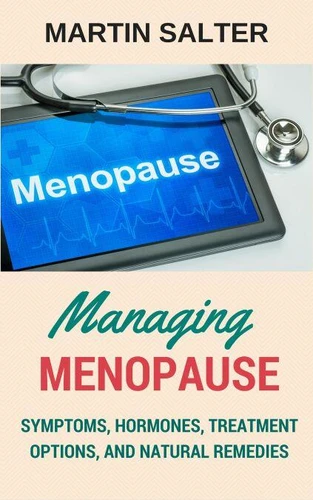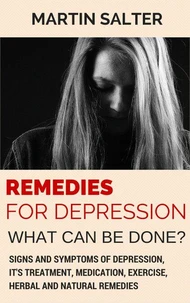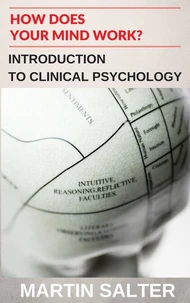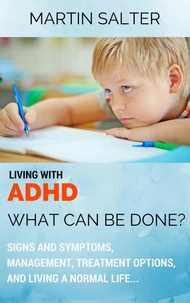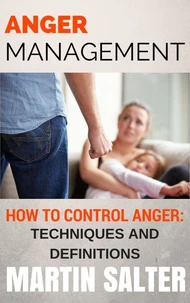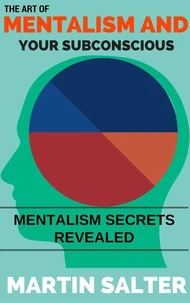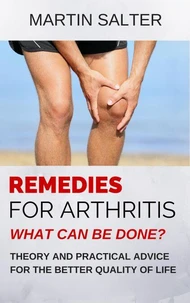Managing Menopause - Symptoms, Hormones, Treatment Options, And Natural Remedies
Par :Formats :
Disponible dans votre compte client Decitre ou Furet du Nord dès validation de votre commande. Le format ePub est :
- Compatible avec une lecture sur My Vivlio (smartphone, tablette, ordinateur)
- Compatible avec une lecture sur liseuses Vivlio
- Pour les liseuses autres que Vivlio, vous devez utiliser le logiciel Adobe Digital Edition. Non compatible avec la lecture sur les liseuses Kindle, Remarkable et Sony
 , qui est-ce ?
, qui est-ce ?Notre partenaire de plateforme de lecture numérique où vous retrouverez l'ensemble de vos ebooks gratuitement
Pour en savoir plus sur nos ebooks, consultez notre aide en ligne ici
- FormatePub
- ISBN978-1-5199-4480-1
- EAN9781519944801
- Date de parution04/11/2015
- Protection num.pas de protection
- Infos supplémentairesepub
- ÉditeurMordant Media
Résumé
Every woman, whether she realizes it or not, will undergo menopause. There are various stages of the process and some women will experience all of them, while others may experience only a few. True, natural menopause occurs when a woman transitions between her fertile and non-fertile years, generally around age 50. Menopause culminates with the cessation of menses and a woman no longer releases any eggs.
As a general guideline, natural menopause is defined as a year since the last period. Most women experience a hormonal shift during this time and may experience a variety of symptoms. As a woman approaches menopause, her supply of eggs and follicles begin to sharply decline. This period right before menopause is called perimenopause, and typically lasts between five and fifteen years. During this time, a woman's brain continues to send hormones which are meant to stimulate ovarian follicle development.
This can cause significant fluctuations with a woman's menses, as her ovaries respond erratically, often creating some of the more frequently observed symptoms of perimenopause. As the ovaries lose their ability to produce an egg, the levels of ovarian estrogen begin to decrease and they no longer produce progesterone. The lining of the uterus begins to thin since there is no longer estrogen to stimulate egg production and release.
Eventually a woman's monthly menses stops completely and menopause happens. During this transition, a woman may experience a variety of symptoms as her body changes. Each woman is different and so is her experience with menopause. There are options for dealing with menopause symptoms and each woman should work with her gynecologist or health provider to develop a plan which works for her.
As a general guideline, natural menopause is defined as a year since the last period. Most women experience a hormonal shift during this time and may experience a variety of symptoms. As a woman approaches menopause, her supply of eggs and follicles begin to sharply decline. This period right before menopause is called perimenopause, and typically lasts between five and fifteen years. During this time, a woman's brain continues to send hormones which are meant to stimulate ovarian follicle development.
This can cause significant fluctuations with a woman's menses, as her ovaries respond erratically, often creating some of the more frequently observed symptoms of perimenopause. As the ovaries lose their ability to produce an egg, the levels of ovarian estrogen begin to decrease and they no longer produce progesterone. The lining of the uterus begins to thin since there is no longer estrogen to stimulate egg production and release.
Eventually a woman's monthly menses stops completely and menopause happens. During this transition, a woman may experience a variety of symptoms as her body changes. Each woman is different and so is her experience with menopause. There are options for dealing with menopause symptoms and each woman should work with her gynecologist or health provider to develop a plan which works for her.
Every woman, whether she realizes it or not, will undergo menopause. There are various stages of the process and some women will experience all of them, while others may experience only a few. True, natural menopause occurs when a woman transitions between her fertile and non-fertile years, generally around age 50. Menopause culminates with the cessation of menses and a woman no longer releases any eggs.
As a general guideline, natural menopause is defined as a year since the last period. Most women experience a hormonal shift during this time and may experience a variety of symptoms. As a woman approaches menopause, her supply of eggs and follicles begin to sharply decline. This period right before menopause is called perimenopause, and typically lasts between five and fifteen years. During this time, a woman's brain continues to send hormones which are meant to stimulate ovarian follicle development.
This can cause significant fluctuations with a woman's menses, as her ovaries respond erratically, often creating some of the more frequently observed symptoms of perimenopause. As the ovaries lose their ability to produce an egg, the levels of ovarian estrogen begin to decrease and they no longer produce progesterone. The lining of the uterus begins to thin since there is no longer estrogen to stimulate egg production and release.
Eventually a woman's monthly menses stops completely and menopause happens. During this transition, a woman may experience a variety of symptoms as her body changes. Each woman is different and so is her experience with menopause. There are options for dealing with menopause symptoms and each woman should work with her gynecologist or health provider to develop a plan which works for her.
As a general guideline, natural menopause is defined as a year since the last period. Most women experience a hormonal shift during this time and may experience a variety of symptoms. As a woman approaches menopause, her supply of eggs and follicles begin to sharply decline. This period right before menopause is called perimenopause, and typically lasts between five and fifteen years. During this time, a woman's brain continues to send hormones which are meant to stimulate ovarian follicle development.
This can cause significant fluctuations with a woman's menses, as her ovaries respond erratically, often creating some of the more frequently observed symptoms of perimenopause. As the ovaries lose their ability to produce an egg, the levels of ovarian estrogen begin to decrease and they no longer produce progesterone. The lining of the uterus begins to thin since there is no longer estrogen to stimulate egg production and release.
Eventually a woman's monthly menses stops completely and menopause happens. During this transition, a woman may experience a variety of symptoms as her body changes. Each woman is different and so is her experience with menopause. There are options for dealing with menopause symptoms and each woman should work with her gynecologist or health provider to develop a plan which works for her.

